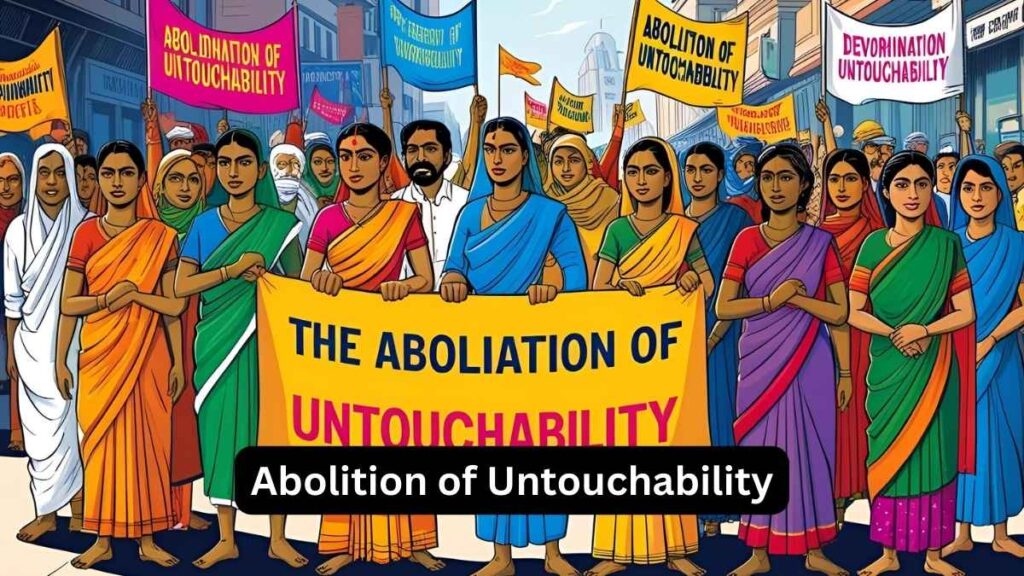Font size:
Print
Safety of Doctors
Context:
The Union Health Ministry has assured protesting doctors of all possible efforts to ensure their safety and urged them to resume their duties in the larger public interest after the Kolkata Rape Case.

More on news:
- The Ministry announced that a committee will be established to propose measures for ensuring the safety of healthcare professionals, and representatives from all stakeholders, including State Governments, will be invited to share their recommendations with the panel.
Current Status:
Legal Provisions:
- According to constitutional provisions (7th Schedule), health and law and order fall under State jurisdiction.
- Therefore, it is the primary responsibility of State governments or Union Territory administrations to monitor events and take necessary actions to prevent violence.
- It’s important to note that there is no centralised record of the number of fatalities among medical professionals resulting from attacks by patients’ families.
Laws against Rape:
- The Bharatiya Nyaya Sanhita (BNS) of 2023 includes new laws that address rape, including punishment for certain cases and other protections for victims:
- Punishment for rape: Section 64 of the BNS states that rape is punishable by rigorous imprisonment for at least 10 years, up to life in prison, and a fine.
- If the victim is under 12 years old, the punishment can be death, and any fine must be paid to the victim to cover their medical expenses and rehabilitation.
- If the rape results in the victim’s death or leaves her in a persistent vegetative state, the punishment can also be death or life in prison.
- Protections for victims: The BNS also includes protections for victims of rape, including:
- Recording statements: A woman police officer will record the victim’s statement in the presence of a guardian or relative.
- Medical reports: Medical reports must be provided within seven days.
- Free medical treatment: The BNS guarantees free medical treatment for victims of crimes against women and children at all hospitals.
- Case updates: Victims are entitled to regular updates on the progress of their case within 90 days.
- Punishment for rape: Section 64 of the BNS states that rape is punishable by rigorous imprisonment for at least 10 years, up to life in prison, and a fine.
- The Prevention of Sexual Harassment of Women at Workplace (POSH) is a comprehensive law in India that aims to protect women from sexual harassment in the workplace. The Act was enacted in 2013 and has been a significant step towards ensuring a safe and respectful work environment for women.
- Key Provisions of the POSH Act:
- Definition of Sexual Harassment: The Act provides a broad definition of sexual harassment, which includes unwelcome physical contact, verbal comments of a sexual nature, demands for sexual favors, and any other act of sexual nature that creates a hostile work environment.
- Internal Complaints Committee (ICC): Every workplace with 10 or more employees must establish an ICC to investigate complaints of sexual harassment.
- The ICC is responsible for receiving complaints, conducting inquiries, and recommending appropriate action.
- Timelines and Procedures: The Act sets out timelines for filing complaints and conducting investigations.
- It also outlines procedures for maintaining confidentiality and protecting the interests of both the complainant and the respondent.
- Penalties: The Act prescribes penalties for employers who fail to comply with its provisions, as well as for individuals who commit acts of sexual harassment.
- Key Provisions of the POSH Act:
- Protection of Children from Sexual Offences Act (POCSO Act): This Act specifically addresses sexual offenses against children, including rape. It provides stricter penalties for those who commit sexual offenses against children.

Violence Against Healthcare Workers:
- Violence against healthcare workers in India is not a new issue.
- A notable case occurred in 1973 when Aruna Ramchandra Shanbaug, a junior nurse at King Edward Memorial Hospital in Mumbai, was sexually assaulted by a hospital sweeper. She remained in a vegetative state for over 41 years following the attack and passed away in 2015.
Need for a Safe Work Environment:
- Experts have highlighted that many medical colleges suffer from poor infrastructure, including dimly lit corridors, poorly secured wards, and long distances between departments.
- Adequate lighting, security personnel, cameras, and staffed walkways between departments, operating theatres, and emergency areas are urgently needed to improve working and living conditions. These simple measures could significantly enhance safety.
Global Perspective:
- Violence against healthcare workers is a global issue, but some countries have implemented effective protective measures.
- The U.K.’s NHS enforces a zero-tolerance policy on violence, backed by a dedicated security team and a comprehensive reporting system.
- In the U.S., certain states classify assaults on healthcare workers as felonies, serving as a strong deterrent.
- Australian hospitals have introduced safety measures like security personnel, panic buttons, and mandatory de-escalation training.
- India must urgently introduce a Central Protection Act and adopt similar measures to ensure a safer environment for its healthcare workers.




